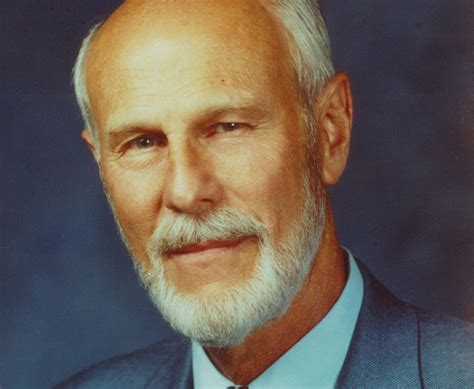A Quote by Philip Johnson
[Evolution] doesn't mean God-guided, gradual creation. It means unguided, purposeless change. The Darwinian theory doesn't say that God created slowly. It says that naturalistic evolution is the creator, and so God had nothing to do with it.
Related Quotes
When we read about Creation in Genesis, we run the risk of imagining God was a magician, with a magic wand able to do everything. But that is not so. God is not a demiurge [demigod] or a magician, but the Creator who gives being to all entities. Evolution in nature is not opposed to the notion of Creation, because evolution presupposes the creation of beings that evolve.
I can understand how evolution says, "don't believe in God", but I've never had this problem. I've always loved His creation. Unfortunately, this doesn't mean any_thing to some people, and I just don't get that! After all, if you just read the Bible plainly, it tells you everything. From Creation, to the Flood, to Jesus. I can't see how you can come to the conclusion, there is no God.
I believe in the theory of evolution, but I believe as well in the allegorical truth of creation theory. In other words, I believe that evolution, including the principle of natural selection, is one of the tools used by God to create mankind. Mankind is then a participant in the creation of the universe itself, so that we have a closed loop. I believe that there is a level on which science and religious metaphor are mutually compatible.
Darwinian evolution is slow and gradual, step by step. Such an evolution can explain micro-evolution but not macro-evolution. For example, how did the eye evolve? The idea behind Darwinism is that organisms adapt, and that nature selects only those genetic changes which are the mutations that serve a good purpose for adaptation. So taken this way, the eye cannot develop gradually because one-thousandth or one-millionth of an eye would be of no value for survival. So generally this question rules out Darwinism as an adequate theory for macro-evolution.
The first point one has to get straight in discussions like this, is that ID is not the opposite of evolution. Rather, it is the opposite of Darwinism, which says life evolved by an utterly unguided, undirected mechanism. If god directed the process of evolution, or rigged the universe to produce complex life, then that is not Darwinism - it is intelligent design.
As many critics of religion have pointed out, the notion of a creator poses an immediate problem of an infinite regress. If God created the universe, what created God? To say that God, by definition, is uncreated simply begs the question. Any being capable of creating a complex world promises to be very complex himself. As the biologist Richard Dawkins has observed repeatedly, the only natural process we know of that could produce a being capable of designing things is evolution.
Any strategy that attempts to reinforce faith by undermining science is also doomed to failure. Showing that some scientific theory is wrong will not prove that the religious alternative is correct by default. When the sun was shown not to be the center of the universe, as Copernicus had proposed, the Earth was not moved back to that singular position in the cosmos. If Darwinian evolution is proved wrong, biologists will not develop a new theory based on the hypothesis that each species was created separately by God 6,000years ago.
You hear a lot about God these days: God, the beneficent; God, the all-great; God, the Almighty; God, the most powerful; God, the giver of life; God, the creator of death. I mean, we're hearing about God all the time, so we better learn how to deal with it. But if we know anything about God, God is arbitrary.
To reverence the impersonal creation instead of the personal God who created us is a perversion designed for escaping moral accountability to the Creator. God indicts those who worship the creation instead of its Creator (Rom 1:18-23); and warns of the corruption of morals and behavior which results.
The approach we try to take here [Morris's Institute for Creation Research] is to assume that the word of God is the word of God and that God is able to say what He means and means what He says, and that's in the Bible and that is our basis. And then we interpret the scientific data within that framework.
I am not religious, but I am a pious man... A religious man has a definite religion. He says "God is there" or "God is there," "God is there." "Your god is not my god, and that's all." But the pious man, he just looks out with awe, and says, "where is God?" And "well, I don't understand it and I would like to know what this creation really means." That is a pious man, who is really touched by the greatness of nature and of the creation.








































